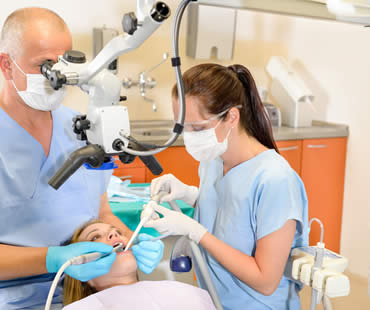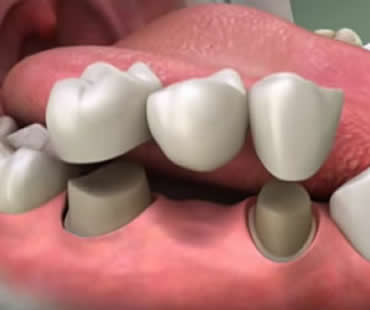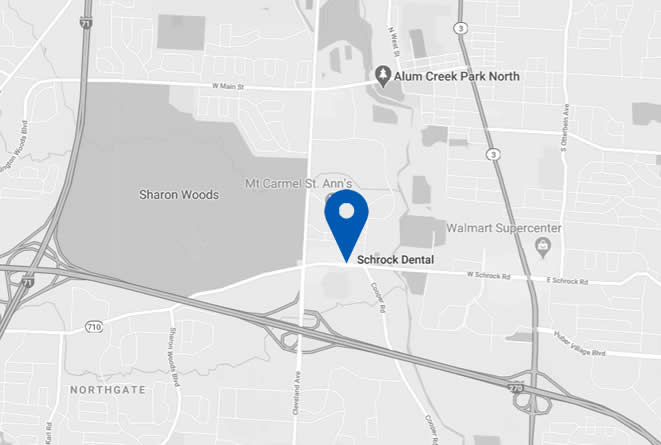
Most dental professionals recommend having third molars, or wisdom teeth, removed in early adulthood, preferably before they are fully formed and rooted into the jaw. Generally, this means having wisdom teeth extracted between the ages of 17 and 25. Waiting until you are older to have wisdom teeth removed can have considerable risks and complications.
Wisdom teeth that are not removed create the following risks:
- Impaction caused by wisdom teeth that do not have sufficient room to grow, causing pain and potential disease and damage to adjacent teeth.
- Tooth decay from wisdom teeth that are difficult to keep clean.
- Infection caused by bacteria that is harbored in the wisdom tooth eruption site.
- Growth of tumors and cysts caused by severely impacted wisdom teeth.
For patients who need to have wisdom teeth removed later in life, complications can include:
- More complicated removal surgery to eliminate deeply rooted or impacted wisdom teeth that results in longer surgery recovery time.
- Roots that have grown close to the nerve that affects the feeling in the lower lip might be injured in surgery, causing permanent nerve damage.
If you or your young adult have emerging wisdom teeth, schedule a consultation with your dentist to determine if and when they should be removed. While some patients will not need to have their third molars extracted, in most cases, having wisdom teeth removed as they are erupting can help to avoid a host of future problems. When wisdom tooth extraction is performed early, recovery time and risk of complications are drastically reduced for most patients.
If you live in the Westerville area contact us today

The area of dentistry that provides preventative and restorative treatment for oral health needs for the whole family is called family dentistry. These types of dental practices deal with all age groups using a wide variety of treatment options.
Although similar to general dentistry, family dentistry does not restrict the practice to specific age groups. It addresses oral health issues at every stage of life, from baby teeth to permanent teeth. Children should begin regularly seeing a dentist around turning one year old, so what better way to start your child’s professional dental care by establishing care with the same dentist that the whole family sees? It is convenient to have everyone seeing the same dentist, and you can establish a long-lasting healthcare relationship for all of you.
One of the most important aspects of family dentistry is ongoing, consistent maintenance and preventative treatment. Experts recommend getting a dental checkup every six months for deep cleanings and routine examinations. This helps eliminate plaque buildup, a primary cause of tooth decay and cavities, and identifies any oral health issues that might be occurring even before symptoms develop.
Fluoride treatments are offered by most family dentists. This involves coating the teeth with fluoride to help prevent tooth decay. Dental sealants are another line of defense against dental issues that family dentists can provide. Other services that some family dentists offer include cavity filling, gum disease treatment, crowns, root canals, extractions, and orthodontics. Treatments offered completely depends on the family dentist and the associated practice. Make sure you ask questions and learn all about the practice before choosing a family dentist for your own family’s needs.
We look forward to seeing you in our Westerville dental office

There are times when a tooth is so damaged from decay, trauma, or cracking that a filling isn’t the best choice. In these cases, a dental crown may be recommended for long-term tooth health. If a tooth is missing completely, your dentist may suggest a dental bridge to fill the gap between two bordering teeth.
Dental crowns, or “caps,” completely cover and protect your damaged tooth. It is bonded in place, giving you a stable, strong, and attractive alternative for your original tooth. Because it is customized for you using impressions your dentist makes of your teeth, it is a perfect match in size, shape, and position to your natural tooth.
Dental crowns can be the perfect solution to a severely damaged tooth. You won’t need to worry about pain, tooth stability, or your appearance when you choose a dental crown. Depending on what material is used, your crown can look as natural as your own tooth.
Dental bridges are designed to span a gap caused by a missing tooth. Having a gap in your smile can affect you in more ways than just cosmetics. Chewing and talking can become problematic as teeth adjacent to the gap begin to shift, leaving the potential for gum disease or jaw issues.
Dental bridges literally bridge the gap between two teeth. They are cemented onto the pair of teeth that border the empty space vacated by one or more missing teeth. The bordering teeth act as anchors for the bridge, and are trimmed down to hold a dental crown. Between the two crowns is a replacement tooth, customized for you by your dentist. Once the bridge is in place, you will regain the ability to smile freely while the bridge maintains the shape of your face and lips. You will speak more clearly and be able to eat a greater variety of foods. A dental crown also protects your healthy teeth from issues related to bite alignment.
Dental crowns and dental bridges are excellent choices for overall dental health, and can last a lifetime. To prevent damage to your dental work, avoid chewing things like ice or hard candy. It is also important to maintain regular dental checkups.
We offer dental crowns at our Westerville dental office

Every member of your family needs a dedicated dental professional who is specialized in handling the oral health needs of each age group. Regular checkups, proper hygiene, and professional cleanings all contribute to a healthy and attractive smile. Whether it’s the parents, kids, or grandparents, everyone should visit the family dentist.
Children:
Pediatric patients require special treatment based on their oral development as well as their emotional stages. Family dentists are familiar with the evolving needs of young patients, who grow from no teeth to baby teeth to permanent teeth. They teach children how to properly care for their teeth and gums, and advise on the do’s and don’ts related to diet and safety. The dentist and staff are also well-trained on keeping children happy and engaged while in the dental office. Family dentists can make kids feel comfortable and confident in the dentist’s chair so they’ll have a positive dental experience for life.
Adults:
With adulthood comes challenges such as increased risk for gum disease, tooth loss, decay that may require root canal treatment, cavities that need replacement, and more. Even with good oral hygiene, normal wear and tear on the mouth can cause issues. That’s why regular checkups are important to catch problems early, plus professional cleanings to combat the signs of age and environment on the teeth. Issues like heart disease or diabetes are also more likely during the adult years, and can impact your oral health.
Seniors:
Older adults require regular dental care for their unique needs. Family dentists offer dental implants or dentures for missing teeth, and are experienced in dealing with dry mouth and other problems common with seniors. After having a long relationship with their family dentist, seniors are able to continue that into their later years so that they have the best oral health possible.
We look forward to seeing you in our Westerville dental office

Veneers are a terrific option to create a dazzling smile. These shells fit right over your real teeth to hide a variety of cosmetic problems. Veneers are typically made of porcelain, giving you a natural and long-lasting smile.
How are they applied?:
Once you and your dentist decide that veneers are right for you, a small amount of your tooth enamel will be removed so that they fit correctly. An impression of your teeth will be made and sent to a dental lab for the veneers to be custom made. When they are ready, you will return to your dentist to have the veneers attached to your teeth with a special adhesive.
What are the benefits?:
It is hard for others to tell you have veneers because they look very natural. They are shaped just for your smile, and you select the color. Veneers resist stains from things like coffee, red wine, and tobacco use. Veneers are also a great choice because they fit right over your own teeth, without requiring more extensive procedures.
Are there disadvantages?:
Some patients experience increased tooth sensitivity after getting veneers due to the minor enamel removal. Also, veneers are permanent and the process cannot be reversed. Another thing to keep in mind is carefully choosing your veneer color, so that your smile isn’t overly white or unnatural.
Are veneers right for everyone?:
Veneers are great for hiding chips, cracks, gaps, or uneven teeth. They are whiten teeth that haven’t responded well to other methods. Veneers may not work for patients with weak teeth from decay, large fillings, or fractures. Patients who grind their teeth or clench their jaws may also be poor candidates because consistent wear can crack or chip the veneers.
What about maintenance?:
Veneers last ten years or more with good care. Practicing proper dental hygiene is important to avoid decay of your teeth under the veneers. Avoid nail biting or chewing on hard items like ice or pencils, which may break the thin veneers. Normal brushing and flossing is acceptable, and regular dental checkups are important in maintaining good oral health.
Our dental office is located in Westerville

Your body is a little bit like a puzzle. It gives you clues to help you figure out what’s going on within your body. Did you know your mouth can give you hints about things that may be happening elsewhere in your body? Here’s a list of some of the signs your mouth can give you to pay attention to certain other aspects of your health.
Worn teeth and headache
If your teeth are showing extensive wear, you may be grinding your teeth. This would be even a stronger possibility if you’re also experiencing regular headaches, which can be caused by the muscle tension related to teeth grinding. This condition also indicates that you are likely under too much stress, and that you are unconsciously coping with it by grinding your teeth.
Gums covering teeth
If your gums begin to grow over your teeth and you are on medication, it may mean that your medication is at fault. Some medicines can cause your gums to overgrow, and the dosage needs to be adjusted.
Mouth sores
An open sore in your mouth that doesn’t go away in a couple of weeks can be an indicator of oral cancer. Numbness and unexplained bleeding in your mouth are other signs. Smokers and people over age 60 are at the most risk, but that doesn’t mean it doesn’t affect others too. See your dentist to make sure all is okay.
Cracked teeth
If your teeth begin to crack or wear extensively, you may have gastroesophogeal reflux disease (GERD). It’s a digestive disease that allows stomach acid to flow back into your food pipe and mouth. This acid can cause your teeth to deteriorate. Additional signs of GERD are acid reflux, heartburn, and dry mouth.
Unclean dentures
If you wear dentures, make sure you remove and clean them regularly. Inhaling food debris from your dentures that makes its way to your lungs can lead to pneumonia.
If you live in the Westerville area contact us today











